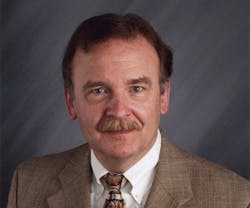New York City Mayor Michael Bloomberg recently announced an expansion of voluntary composting programs that, ultimately, will become compulsory. When that message hit the news websites, it stoked fiery reader comments about government overregulation. Some comments likened the composting program to Bloomberg’s attempt to ban the largest servings of soft drinks, the proposed law that Sarah Palin mocked by drinking from a Big Gulp while speaking at a podium. Other skeptics questioned the city’s ability to manage a composting program given its size, density, and record on garbage disposal.
According to the mayor’s office, pilot composting programs have already had significant success. These include a school program that reduced garbage heading to landfills by 38% and a voluntary program for restaurants, where it is estimated that as much as 40% of food goes uneaten. Bloomberg has said that about a third of the city’s garbage involves food waste.
The city expects that more than 100 high-rise residential buildings and 150,000 single-family homes will be participating voluntarily by next year, according to The New York Times. City officials say that a mandatory, city-wide composting program could be in place within two to three years.
San Francisco and other cities with large composting programs report that it is far cheaper to compost than to send garbage to landfills, which, in New York’s case, can be as far away as South Carolina. Other benefits include reduced greenhouse gas emissions at landfills and lower risk of groundwater pollution. Composting also increases awareness of how much food might be saved by changing our habits. Finally, the compost itself has economic value; California vineyards, for example, purchase San Francisco’s compost.
Educating citizens on the benefits and changing their attitude are likely to be keys to success. Many of us can’t help but think about the inconvenience of handling fetid food waste and possibly creating new problems like pest and vermin invasions. The engrained attitude toward garbage – get it out of sight and mind as quickly as possible at any cost – is strong and has been known to move a great deal of earth, if not heaven. In a project once touted as the achievement of a millennium, Chicago undertook an excavation larger than that of the Panama Canal in order to reverse the flow of the Chicago River, sending waste out of sight in the direction of St. Louis since 1900.
The days of such environmentally unfriendly solutions are long gone. We need solutions that reduce cost, add value, and keep disposal closer to the source.
